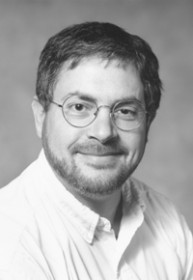
4:00 pm to 5:00 pm
Event Location: NSH 1507
Bio: Rich Caruana is a Senior Researcher at Microsoft Research. Before joining Microsoft, Rich was on the faculty at the Computer Science Department at Cornell University, at UCLA’s Medical School, and at CMU’s Center for Learning and Discovery (CALD). Rich’s Ph.D. is from Carnegie Mellon University, where he worked with Tom Mitchell and Herb Simon. His thesis on Multi-Task Learning helped generate interest in a new subfield of machine learning called Transfer Learning. Rich received an NSF CAREER Award in 2004 (for Meta Clustering), best paper awards in 2005 (with Alex Niculescu-Mizil), 2007 (with Daria Sorokina), and 2014 (with Todd Kulesza, Saleema Amershi, Danyel Fisher, and Denis Charles), co-chaired KDD in 2007 (with Xindong Wu), and serves as area chair for NIPS, ICML, and KDD. His current research focus is on learning for medical decision making, deep learning, adaptive clustering, and computational ecology.
Abstract: Deep neural networks are the state of the art on problems such as speech recognition and computer vision. Using a method called model compression, we show that shallow nets can learn the complex functions previously learned by deep nets and achieve accuracies previously only achievable with deep models while using the same number of parameters as the original deep models. On the TIMIT phoneme recognition and CIFAR-10 image recognition tasks, shallow nets can be trained that perform similarly to complex, well-engineered, deeper convolutional architectures. The same model compression trick also can be used to compress impractically large deep models and ensembles of large deep models down to small- or medium-size deep models that run more efficiently on mobile devices or servers.
